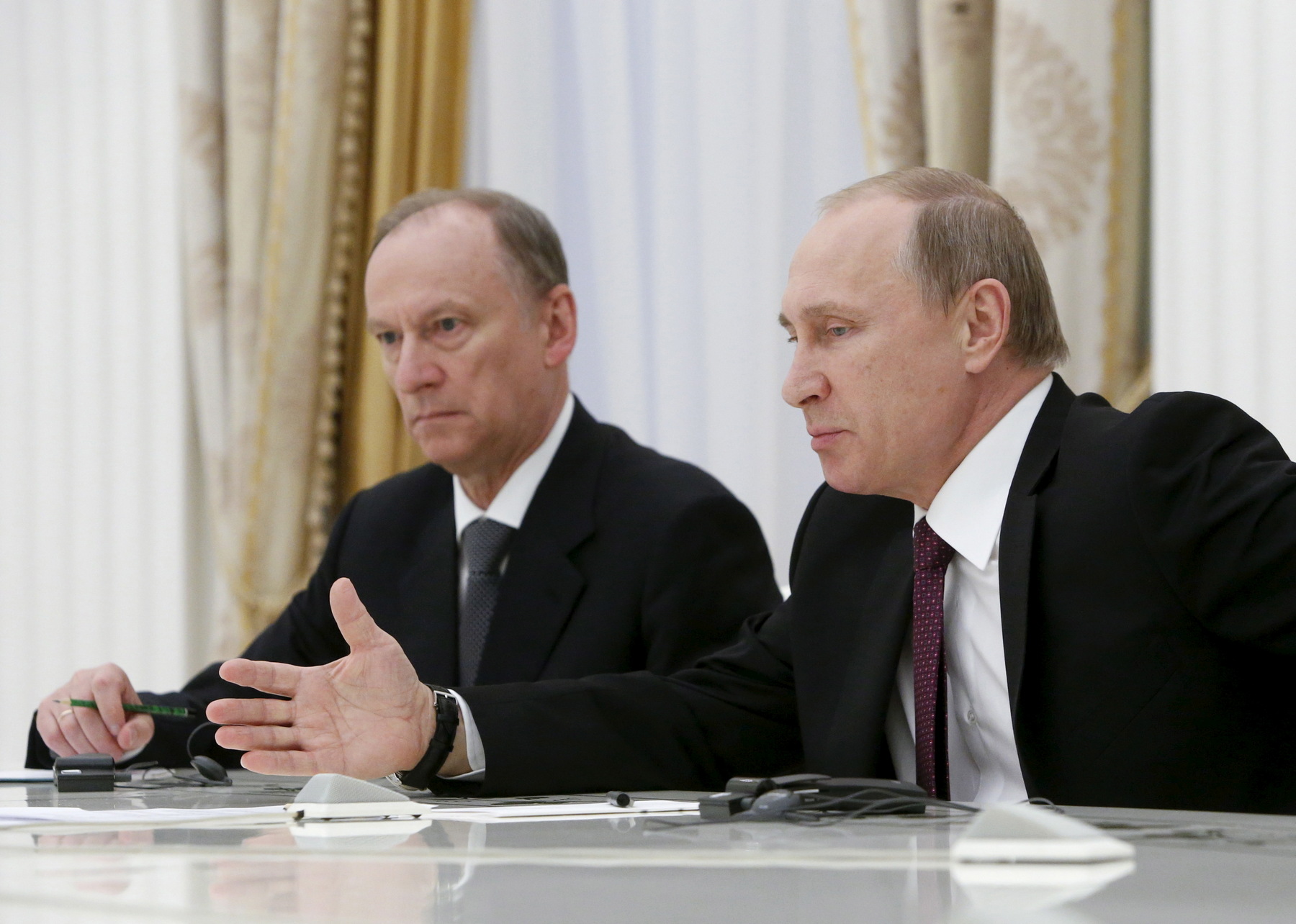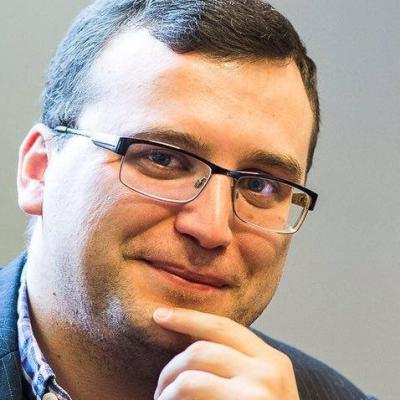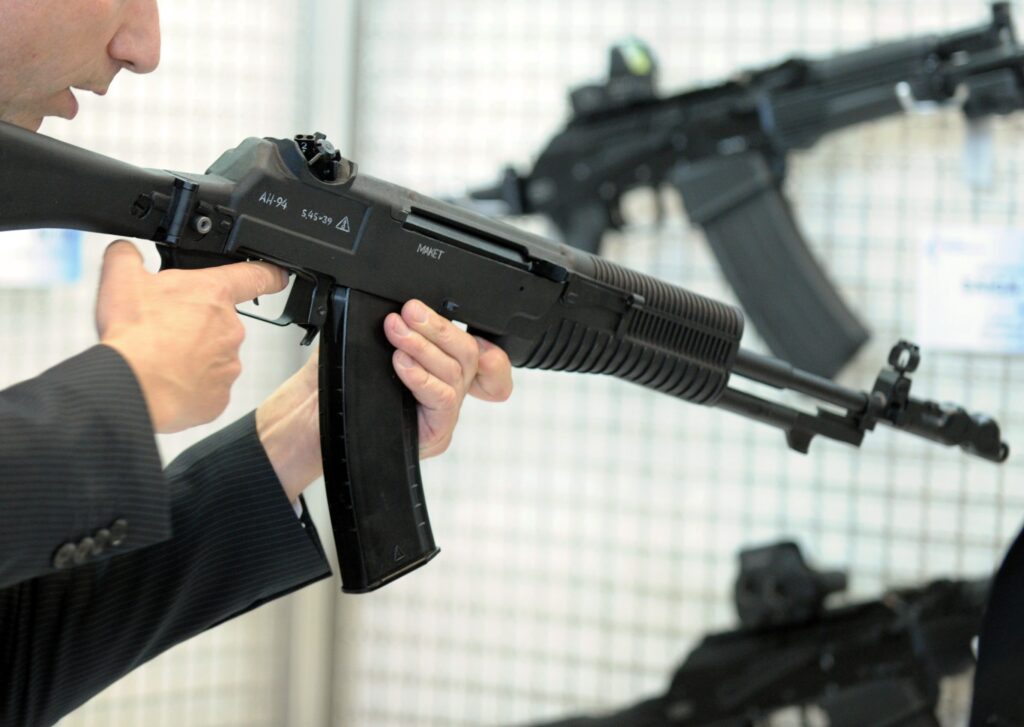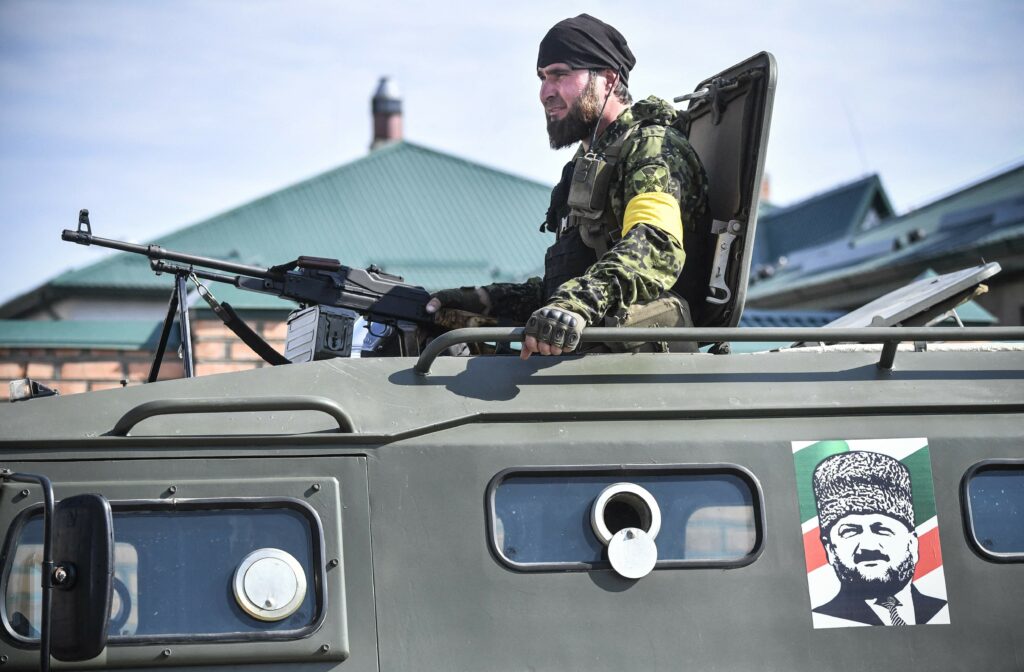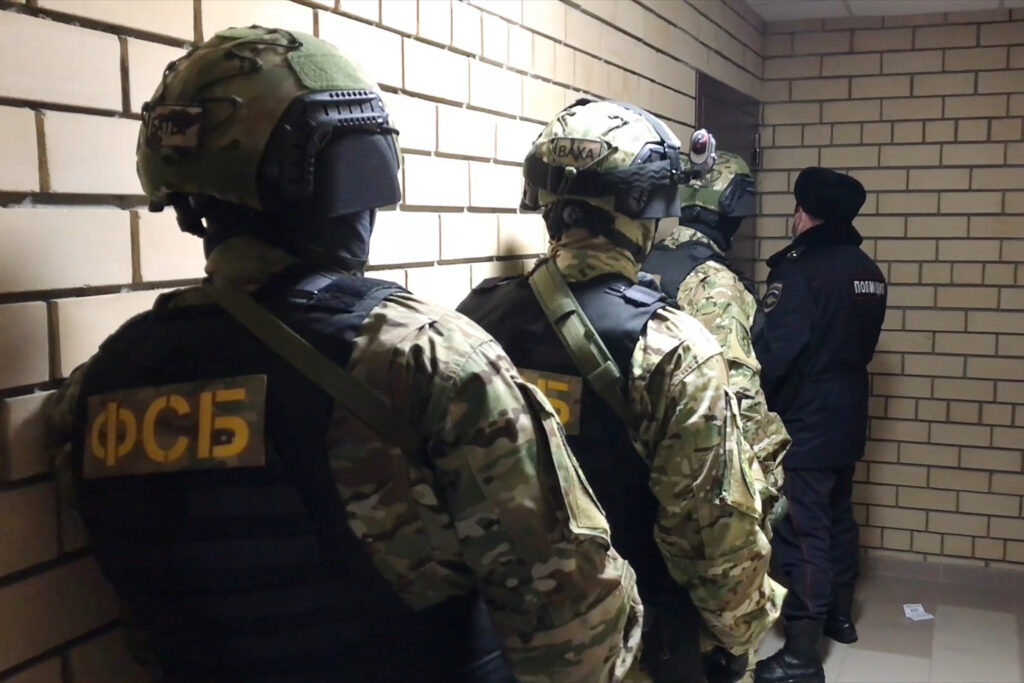The political mindset (ideology) of the Russian authorities is a complex issue. On the one hand, it is disputable whether such an ideology exists at all. At the very least, it cannot be traced back to any mainstream political-philosophical or religious system. At various times, Vladislav Surkov, Alexander Dugin and several other figures were referred to as ideologists of the contemporary Russian power elite. However, judging by their texts, they were ‘political stylists’ rather than ideologists.
On the other hand, if we assume that ideology is a set of beliefs driving political action, then the Russian political class has such a set of beliefs. And there have been numerous attempts to analyse it. The authors of this ideology cannot be named, but the ideology itself can be traced in documents and in speeches by representatives of the political elite and their associates from the expert community and bohemia, in which they try to interpret the surrounding reality. This ideology grew out of political practice rather than philosophy. However, it is worth emphasising that it is not static. Consequently, this text focuses on the mainstream ideology of the Russian political class that is appearing in the early 2020s.
The intra-political dimension: the ‘non-aggression treaty’ within the elite
One of the main contradictions in political systems akin to that of Russia is the inconsistency between its republican nature, enshrined in the constitution (power entrusted by the citizens, and not coming from God/tradition), and its authoritarian essence (the lack of public accountability). At the same time, the Russian system lacks revolutionary, military or national-liberation legitimacy. Its sources of legitimacy include the idea of extended authoritarian modernisation and the mechanism of elections, which, due to a deficit of other sources of legitimacy, is much more important for the Russian authorities than for other similar systems.
That is why a lot of attention is paid to elections: a lot of effort is spent on mobilising voters and supporters dependent on the authorities, crushing, co-opting, bribing or demoralising opponents and keeping the so-called silent majority in check. Since the 1990s, the Russian political elite has opposed any mass grassroots participation in the political life of the country – elections, referendums, protests or any form of horizontal social self-organisation.
This approach is often explained by Vladimir Putin’s personal stance, as his career trajectory took a turn twice, in the late 1980s and the mid-1990s, precisely because of the mass participation of citizens in politics. However, this reasoning appears to be at least incomplete and at most erroneous. The top of the Russian political elite today consists mainly of people born in the 1950s and 1960s. If we were to apply the methodology of a political-psychological analysis of socio-territorial systems developed by Nikolay Kosolapov to them, we could identify two major groups.
One group comprises people representing the first generation to be socially and materially promoted, who made it to the very top immediately. These are, for example, Yury Borisov, Alexander Bortnikov, Vyacheslav Volodin, Tatyana Golikova, Sergey Ivanov, Valentina Matviyenko, Mikhail Mishustin, Sergey Naryshkin, Vladimir Putin, Igor Shuvalov and others. Of course, they are interested in preserving what has been achieved, but they are politically flexible. They are no strangers to initiative and even risk; otherwise, they would never have reached their positions or kept them.
Another political elite group comprises those who have become the second or even third generation in their families to make continuous social and material progress. In today’s Russia, this second generation includes Boris Gryzlov, Denis Manturov, Nikolay Patrushev, Dmitry Rogozin, Sergey Sobyanin and Sergey Chemezov. The third generation includes Andrey Belousov, Anton Vaino (though he was born in 1972), Sergey Kiriyenko, Sergey Lavrov, Dmitry Medvedev and Sergey Shoigu. These are people who could have claimed places in the Soviet political elite but have become representatives of the post-Soviet Russian elite. These should have been the most ardent hardliners opposed to the democratic political processes that took place in the late 1980s and early 1990s. Obviously, this is not the case.
One could assume that all these people made their careers in a closed bureaucratic system, in a system of administrative marketplaces, and simply could not win in an open competitive political environment. This is why they are supposedly afraid of democracy. But this is also not the case: most of them are quite capable of taking action in the public sphere, and some – for example, Lavrov and Shoigu – generally have a lot of credibility and are popular with Russian citizens, despite their age.
The stripping of political agency from Russian society and opposing the revival of political agency can better be explained by a functional, rather than psychological, factor. And this factor is a kind of a ‘non-aggression treaty’ within the Russian elite. Rejection of politics through elections (and even more so through the vox populi) is a minimisation of political and economic risks for the majority of the Russian ruling class under conditions of a shortage of resources for a competitive political struggle. This political setup is also facilitated by the low level of trust between its representatives (as well as in Russian society as a whole) and by the absence of developed institutions and traditions of power transfer, asset retention and political struggle which would not tolerate the political, economic or sometimes physical elimination of opponents.
It might even be concluded that contemporary Russian authoritarianism is a continuation of the consensus that emerged in the Soviet era after 1953 and was finally institutionalised in 1964. The underlying motive of this consensus is not to allow a repetition of Stalinism in the practical political sense (although aesthetic and rhetorical references to it are allowed) and not to stir up the uncomfortable past, which casts doubt on the idea of authoritarian modernisation as one of the foundations of the legitimacy of the contemporary Russian system.
The denial of political agency to Russian society in the name of maintaining a ‘non-aggression treaty’ within the elite is precisely in line with the Kremlin’s ‘counter-revolutionary’ policy. In turn, attempts to control the ideological and political sphere of Russian society inevitably lead to the idea that this control could be challenged from within and from outside. Therefore, this sphere inevitably begins to be perceived as a space of manipulation and even confrontation (‘mental warfare’). In addition, such perceptions and language itself serve to cement the ruling class as a whole. This does not mean that the Russian authorities are not interested in receiving feedback from society. After all, the republican nature of the Russian system cannot be undone, and feedback is necessary. It is implemented not in the competitive field of public policy, but through sociological agencies, state media and, in the last decade, also through social media, various sites and applications like Managing Together.
The economic dimension: anti-capitalism and NEP 2.0
The ideology of the Russian political class also has an economic dimension, aimed at contrasting the Russian economic system with capitalism. The contours of this opposition can be traced back to the first half of the 1990s and have two origins. First, there is the strengthening and maintenance of the political system through the managed redistribution of economic assets. Second, there is a peculiar ‘socialist consensus’ between the elite and society, which took shape back in the era of perestroika, when citizens were endowed with a certain economic freedom, but the main responsibility for their own well-being was delegated to the state – a kind of NEP 2.0.
This was confirmed by the very essence of the first economic reforms, formulated by Yegor Gaidar in his work ‘The State and Evolution’, and Article 7 on the social state and state paternalism for many social groups added to the 1993 Constitution. The cumbersome system of business regulation and control, coupled with the fiscal burden and the constant threat of criminal prosecution, also contributed to the cause. A system of state corporations and companies in all key sectors of the economy dates back to the early 2000s. All this was taking place against the backdrop of the defeat of Yukos and other high-profile lawsuits. As a result, by the early 2020s, the Russian military industry had established stable elements of the new administrative-command system, while in other sectors the government was increasingly experimenting with controlling commodity flows and regulating prices.
On emerging from the transformational crisis of the 1990s, the Russian authorities (similarly to the Soviet authorities before them), with the full support of society, adopted the idea of catch-up authoritarian modernisation, which, I repeat, works to ensure the legitimacy of the political system.
Thus, the anti-capitalism of the Russian authorities has grown and is supported not by the philosophical postulates of Marxism-Leninism but by the political practice of 1991–2021. Of course, this approach is slowing down the country’s economic development, entrepreneurial activity, the formation of full-fledged capital and the improvement of citizens’ welfare. All this is sacrificed for the sake of the stability of the power system, the amount of resources redistributed by it and the predictability (probably illusory) of socio-political processes.
The foreign policy dimension: a super power without the imperial burden
The ideological foundations of Russian foreign policy are fairly obvious. First, Russia is a super power involved in solving every important issue the modern world is facing. Second, Russia is a world power, alternative to both the West and China, and thus attractive to many developing countries. Third, Russia is an opponent of the West, while being interdependent with it in strategic stability issues in general and European security in particular, as well as in energy and space exploration.
The Russian elite’s vision of the post-Soviet territory is less clear. At first glance, Putin’s texts and speeches suggest a course towards a new political unification between Russia and Ukraine, Belarus and possibly other former Soviet republics or parts thereof. However, the long-term vector of Russian efforts is economic. The Russian elite seeks to retain its exclusive sphere of influence in the post-Soviet countries through the Eurasian Economic Union, backed up by a system of military bases. This commodity-monetary approach helps maintain Russia’s high status in the global world and provides it with a guaranteed market for its companies as well as commodities, relatively cheap labour and food. The latter is important for a country that has been critically dependent on food imports for decades, and even received food aid in the early 1990s. This approach also obviates the need to spend significant resources on the development of the former Soviet republics, share power with their elites or at least build a system of equal partnership with them.
Of course, the idea of controlling the post-Soviet states is not that simple. Thus, in the 1990s, Russia faced a migration crisis comparable in scale to that experienced by EU countries in the mid-2010s. This crisis peaked in 1997, when the country had over one million officially registered IDPs mostly from Central Asia and the South Caucasus. This created interethnic tensions in Russian cities.
The Russian elite learned its lesson: uncontrolled socio-economic and political processes in the former Soviet republics pose threats to order within Russia itself. By the way, the Russian authorities, having dealt with a rising neo-Nazi movement in the 2000s and having brought emerging diasporas under control, partially drew on the agenda of Russian nationalism and even implemented it in the Constitution amended in 2020. This ideological vector also emerged from practical political experience.
Moreover, the Russian political class believes that the post-Soviet countries should by no means serve as an example of an alternative and successful state structure. This applies, first of all, to Ukraine and Belarus. In other words, it is not at all the imaginary ‘unity’ of Belarusians, Ukrainians and Russians but the stability of its power and economic positions which is cherished by the Russian elite.
Conclusion: historical mission and strategy
To conclude, it is possible to formulate a strategy of the Russian political class, which is tantamount to its subjectively understood historical mission. In a nutshell, it is the mission to ‘correct historical mistakes’. While the Bolsheviks regarded the revolutions and other forms of social unrest in Russia as progressive forces of history, the post-Soviet Russian elite regards all of this as unfortunate mistakes and malfunctions (all the more surprising that it does not eliminate the revolutionary toponymy in Russian cities, since continuity with the USSR seems to be more important). From this point of view, perestroika’s mistake consisted not in economic transformation and not even in the revision by the elites of the 1992 Declaration Treaty on the Formation of the Union of Soviet Socialist Republics, which led to the collapse of the USSR, but in political reform, which drew the masses of citizens into the political orbit.
As a result, the contemporary Russian elite is trying to achieve several goals: first, to keep citizens in a submissive state, while they are adapting to the natural socio-economic and cultural changes; second, to complete the scientific and technological modernisation of state industry – so as to catch up – while transferring the spheres of trade, services and production of fast-moving consumer goods into private hands, including even limited access for foreign investors, but with government regulation and oversight (in essence, this is the economic program of perestroika). In addition, the authorities are trying to establish rules for the post-Soviet space that are beneficial to them. And it is critically important to maintain Russia’s status as a superpower without excessive imperial burdens, which in different eras included the export of orthodox Christian, pan-Slavic or communist attitudes to the outside world.
Given the above, one can easily trace the desire not only to retain a high social status and level of well-being but also to pass it on, as well as to obtain natural political privilege (immunity) and guaranteed, long-term influence in the world. This set of ideas, which is relevant for representatives of the generation of the 1950s and 1960s and their not so numerous children, can also be attractive to their political heirs, the generation born in the 1970s, which is gradually strengthening its position at the helm in Russia. The main condition for the preservation of the status quo is the absence of a deep political crisis during the transfer of power.
